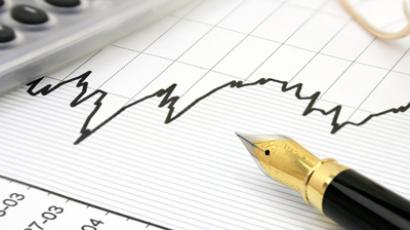The reasoning behind the IEA oil release

With oil prices slumping in the wake of the IEA’s announcement it will add to supply by releasing from global strategic reserves, Business RT spoke with Christine Tiscareno, oil and gas analyst at Standard & Poor's Equity Research about the factors.
RT: What do you think the IEA is trying to achieve. Is this simply a matter of boosting supply or is it more a political statement of intent?CT: “I think it is three things. One it is trying to ensure that when the northern hemisphere is going to the driving season there will be enough supply. Now a lot of the OPEC member countries have said there is enough supply, and that is correct, but what you need is to make sure that prices don’t spiral up. The second is to ensure that there is a soft landing for the economy. This is not just for OECD countries, but also for developing countries who are facing a lot of pressure in terms of food prices going up, and inflation, at a time of economic hardship. So what they are trying to ensure is that the world economy does not go into a down to recession. And thirdly there have been a lot of frustration from oil barrels that have been taken out of the market on speculation. Whether this is true or not is very difficult to prove, but what is sure is that this is something that traders were not expecting. The problem was that before crude oil prices increased significantly even though the amount by which oil prices went up was not justified. So what the IEA is saying is ‘listen guys, we are going to dump oil in the market so don’t try to get prices up because you are going to lose money, we are going to flood the market with oil and you should stop doing that.’ Now what is going to happen now is that traders are no longer going to be looking at prices going up to $120, they are looking more at prices going below $90. So this should put a barrier to oil prices and cap, which should hopefully ensure that the world continues to soft land, and recover from the recession.”RT: But it seems that prices are now at $91/bbl for WTO. This is sort of levels we saw before tensions in Egypt. Now what will happen in thirty days after this reserve oil is actually gone from the market?CT:“Well you have got to understand that what the IEA is saying is not just dumping oil. Saudi Arabia has said that they will increase production to 10 million barrels of oil per day, to make sure that not just the driving season is well supplied for, but now that refineries are coming on, because when the Libyan crisis took place you have got to remember a lot of the refineries were during their maintenance period. Now demand has increased, but Saudi Arabia needs time, not just to increase its production but to get it to market. It tales about 2 weeks for the oil to reach the United States or Japan, so this increasing oil production from Saudi Arabia won’t reach the market until maybe 30, in some cases even 60 days. So what the international agency is doing is that it is going to supply oil, which should start hitting the market at the end of next week, so that they can bridge the gap between the time that oil demand is increasing and supply from Saudi Arabia comes on the market. So they are coordinating themselves. This was not a move that was taken, as some agencies have reported, unilaterally, there have been compensations in the bag, I am sure China and India, you know the countries that supported Saudi Arabia, Kuwait and the United Arab Emirates, and countries in Europe which are very frustrated by the fact that they believe that speculators can raise the prices and hinder their economic recovery. Rendering their economic policies useless at a time which is very crucial.”














